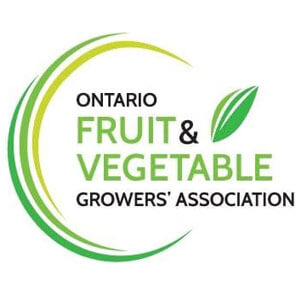Guelph ON, 15 May 2023 – The Ontario Fruit and Vegetable Growers’ Association (OFVGA) welcomes the completion of the Jamaican government’s fact-finding report into the Seasonal Agricultural Worker Program (SAWP). The report found that a large proportion of Jamaican farm workers have a positive view of SAWP, and the vast majority of Ontario farm employers using the program are operating within its parameters.
Furthermore, the report categorically states that no evidence was found to support activist claims that the program’s working conditions were akin to systemic slavery. It was these dramatic allegations that triggered the thorough independent investigation of SAWP by a Jamaican government taskforce last year.
“We recognize there is always more that can be done to ensure all workers have the opportunity for a positive and safe working experience while they help our farms grow fruits and vegetables for the Canadian public,” says Bill George, grape grower and chair of the OFVGA’s labour committee. “However, the report clearly shows that this can be done with specific targeted measures rather than assigning hateful and broad labels to all the hardworking farmers and their employees in the program.”
SAWP first started in 1966 with 264 Jamaican workers who came to Ontario to help with apple harvest. Today, the heavily regulated, government-approved program is open to workers from Mexico, Jamaica, Trinidad & Tobago, Barbados and the Eastern Caribbean Islands who come to Canada to work for a defined period of time before going home for the winter.
The report also shows that SAWP is a program highly valued by both Jamaicans and Canadians. For the Jamaican workers, their jobs in Canada let them support their families with health care and education, establish farms and businesses and create jobs in their communities back home.
Their Canadian employers rely on the skills and expertise of their Jamaican workforce in the face of a large and growing shortage of labour in the agricultural sector. Without these workers, many labour-intensive fruit and vegetable crops that Canadians love could no longer be grown here in Ontario.
“Most importantly, the report highlights the strong sense of pride and self-fulfillment that the Jamaican workers derive from their farm work in Canada,” adds George. “In a world where many people struggle with mental health and with finding a sense of purpose, we need to acknowledge and encourage things capable of elevating people’s pride and self-fulfillment rather than trying to destroy it with harmful labels and negativity.”
In 2021, OFVGA launched the More than a Migrant Worker initiative to give international farm workers a chance to tell their stories, in their own words, of their lives in Canada and why they come here to work.
The Ontario Fruit and Vegetable Growers’ Association is the voice of Ontario’s fruit and vegetable producers on issues affecting the horticulture sector.
-30-
Background information on seasonal and temporary foreign agricultural workers in Ontario
Canada’s government-approved foreign worker programs for agriculture are the Seasonal Agricultural Worker Program (SAWP) and the agriculture stream of the federal Temporary Foreign Worker (TFW) program. Employers under these programs have the same and, in some cases, higher obligations to their temporary foreign workers as they do for their Canadian employees, including government approved wage rates, access to health care under OHIP, Employment Insurance and the Canada Pension Plan as well as workplace insurance coverage and safety protection – just like any Canadian employee is entitled to.
Workers with permits under SAWP or the TFW program are paid the same wages for the same work as Canadians. Employers must pay their workers the highest of three possible rates: the province’s minimum wage, a standard seasonal agricultural rate set by the federal government and determined by the type of work being done, or the rate an employer would otherwise pay a Canadian worker doing the same job.
Farm businesses hiring SAWP or TFW program workers are inspected by the Ontario Ministry of Labour, Immigration, Training and Skills Development, Employment Social Development Canada, and in the case of SAWP workers, liaison officers from their home countries, for compliance with regulations around employment standards, working conditions and workplace safety.
Non-compliant SAWP and TFW program employers are fined, placed on probation, or excluded from the program in the future if they fail to meet the program’s very high standards.
Ontario housing for workers with permits under SAWP or the TFW program must follow fire and building codes and local public health standards. All housing is supervised and inspected by government officials, local public health units and, for SAWP workers, liaison officers from their home countries. Inspections are completed annually before workers are allowed to arrive on the farm. Ontario worker housing guidelines have set requirements including, but not limited to, providing housing that is pest-free, has clean water and adequate sanitation facilities.
Workers with permits under SAWP or the TFW program also have access to a multilingual, 24/7 federal government support centre they can use to raise concerns and seek help relating to their current employment.
Unfortunately, migrant workers who are undocumented or don’t have legal work permits are vulnerable to mistreatment, regardless of which sector they work in. Governments at the federal and provincial level have made it a priority to prevent the exploitation of these undocumented people and the farming sector is fully supportive of this aim.

